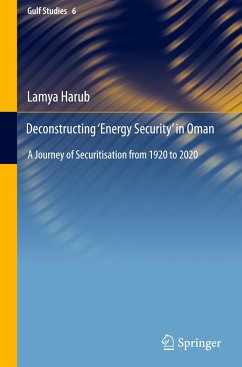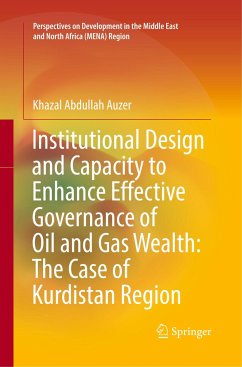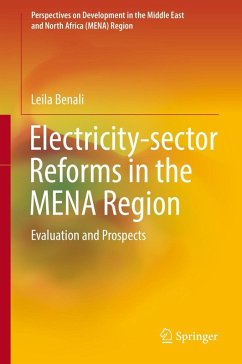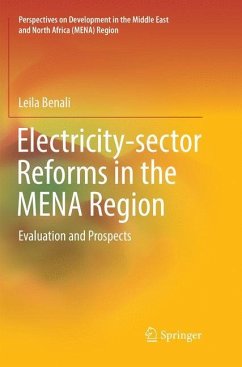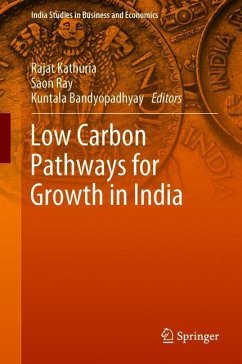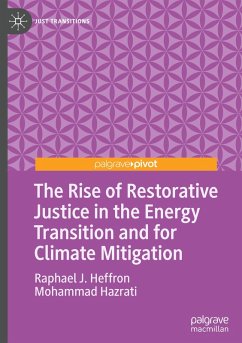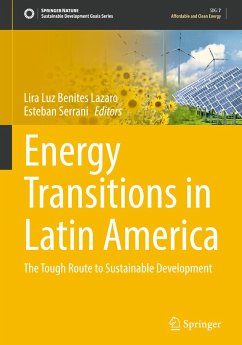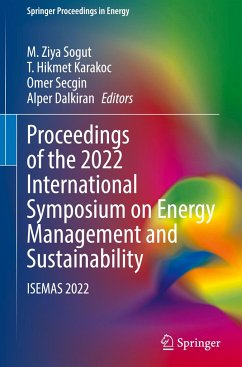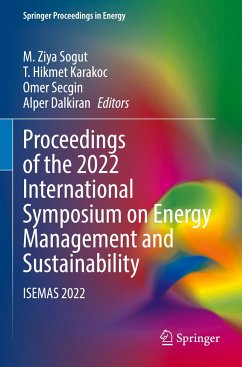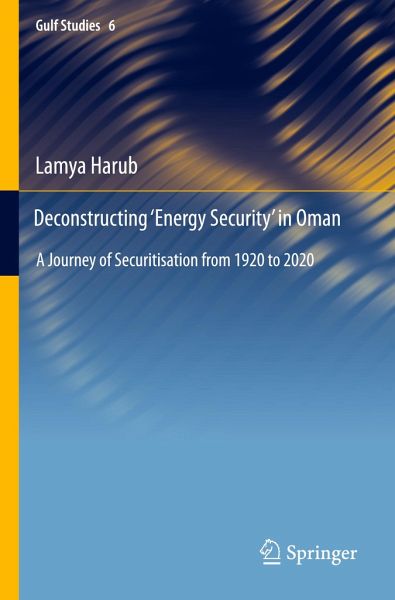
Deconstructing 'Energy Security' in Oman
A Journey of Securitisation from 1920 to 2020
Versandkostenfrei!
Versandfertig in 6-10 Tagen
113,99 €
inkl. MwSt.
Weitere Ausgaben:

PAYBACK Punkte
57 °P sammeln!
This book makes a substantial and timely contribution to discussions on energy security in Oman, providing a systematic analysis of energy security in Oman from 1920 to 2020. It is particularly relevant in light of the recent global geopolitics of the Gulf particularly, and the Middle Eastern region broadly, as well as connecting to current climate change research and debates. Combining a political sociological account with postcolonial concepts within a theoretical and empirical exploration of energy politics, the book weaves a study of energy security into the historical and contemporary dev...
This book makes a substantial and timely contribution to discussions on energy security in Oman, providing a systematic analysis of energy security in Oman from 1920 to 2020. It is particularly relevant in light of the recent global geopolitics of the Gulf particularly, and the Middle Eastern region broadly, as well as connecting to current climate change research and debates. Combining a political sociological account with postcolonial concepts within a theoretical and empirical exploration of energy politics, the book weaves a study of energy security into the historical and contemporary development of political, economic, security, and social structures in Oman. Including interviews with Omani and Oman-based practitioners, as well as grounded in historical documents which include Arabic-language sources, this book evaluates the energy question beyond the typical economic perspective, considering socio-political opportunities and challenges. It also makes economic-related recommendations in tandem with rentier state theory. Unlike the dominant accounts of energy security in Oman, this book sets itself apart by moving away from utilising liberal and realist approaches for its analysis and engages systematically with critical security studies to introduce a non-Eurocentric perspective to the arena. Of interest to scholars in Middle Eastern history, energy security, and security studies, this book assumes an important place in the critical literature on the Gulf, particularly within environmental studies and energy policy literature.





